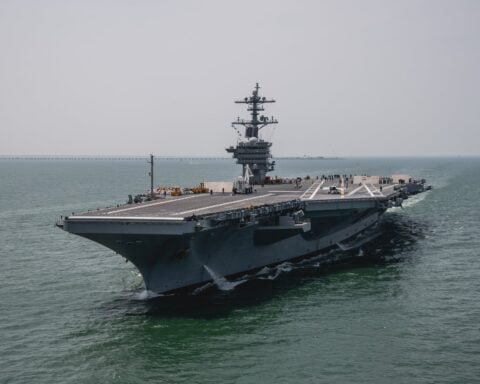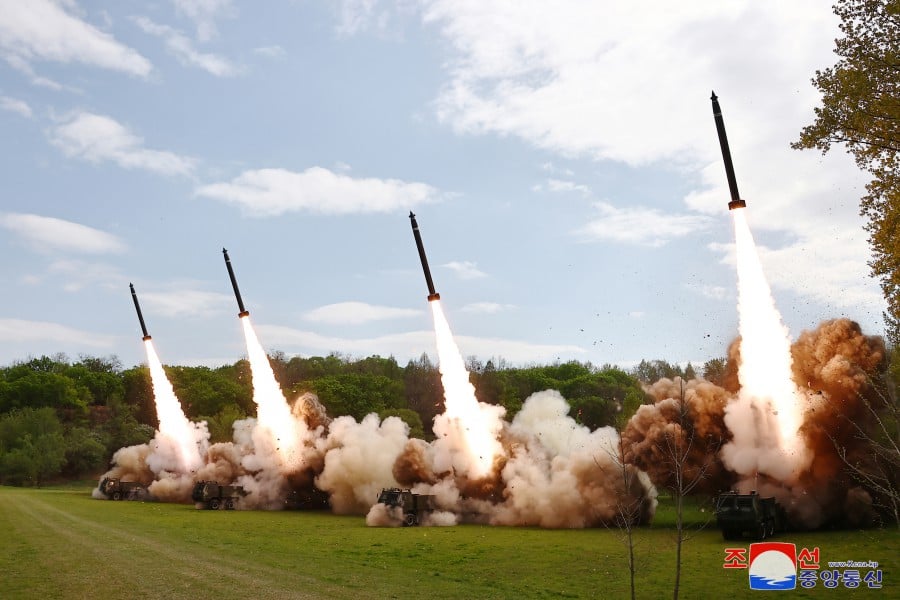The following is the May 13, 2020 Congressional Research Service report, F-35 Joint Strike Fighter (JSF) Program.
From the report
The largest procurement program in the Department of Defense (DOD), the F-35 Lightning II is a strike fighter aircraft being procured in different versions for the United States Air Force, Marine Corps, and Navy. Current DOD plans call for acquiring a total of 2,456 F-35s. Allies are expected to purchase hundreds of additional F-35s, and eight nations are cost-sharing partners in the program with the United States.
The F-35 promises significant advances in military capability. Like many high-technology programs before it, reaching that capability has put the program above its original budget and behind the planned schedule.
The Administration’s proposed FY2021 defense budget requested about $11.4 billion in procurement funding for the F-35 program. This would fund the procurement of 48 F-35As for the Air Force, 10 F-35Bs for the Marine Corps, 20 F-35Cs for the Navy and Marines, advance procurement for future aircraft, and continuing modifications. The proposed budget also requested about $1.7 billion for F-35 research and development.
FY2020 defense authorization act: The FY2020 defense authorization bill funded F-35 procurement at $10.9 billion for 90 aircraft (60 F-35As, 10 F-35Bs, and 20 F-35Cs, an increase of 11 aircraft and decrease of $0.5 billion from the Administration’s request), including $1.4 billion in advance procurement, the requested level. The joint explanatory statement accompanying the bill included language
- authorizing economic order quantity contracting and buy-to-budget acquisition, allowing the purchase of more than the authorized number of F-35s if that procurement would not require additional funds and would mitigate any negative cost and schedule impacts from the actions or decisions of foreign partners or customers (e.g., reduction in purchased quantities);
- requiring the Secretary of Defense to seek compensation from the F-35 contractor for costs related to the failure to deliver ready-for-issue spare parts;
- restricting the transfer of F-35 aircraft, technology, support equipment, and other assets to Turkey, unless certain conditions are met;
- requiring certification that support equipment needed to absorb F-35s formerly intended for Turkey into the U.S. fleet will be procured prior to taking possession of those jets;
- requiring a competitive analysis among various methods to improve the F-35’s Autonomic Logistics Information System;
- requiring the F-35 Joint Program Office (JPO) to provide sustainment cost data as part of existing quarterly briefings to the congressional defense committees;
- reporting on the progress and performance of the F-35 aircraft program (§166);
- mandating reports on an integrated master schedule and past performance assessment for each planned phase of F-35 Block 4 and C2D2 upgrades, F-35 reliability and maintainability metrics, Block 4 capability development and fielding activities, and modernization and upgrade plans for the F-35 Autonomic Logistics Information System (ALIS), and the steps being taken to improve accountability of F–35 parts within the supply chain.
FY2020 defense appropriations bill: The final omnibus budget bill funded F-35 procurement at $11.1 billion for 98 aircraft (62 F-35As, 16 F-35Bs, and 20 F-35Cs, an increase of 20 aircraft and $.3 billion below the Administration’s request), including $1.4 billion in advance procurement, the requested level. The joint explanatory statement accompanying the bill included language
- restricting funds to deliver F-35s or related equipment to Turkey, except in accordance with Section 1245 of the FY2020 National Defense Authorization Act;
- designating savings resulting from F-35 cost reductions to fund alternate sourcing of F-35 parts manufactured in Turkey and to convert F-35As previously designated for Turkey for United States Air Force use;
- requiring a certification that the Department of Defense has submitted a formal request for proposal (RFP) for provisioning and cataloguing F-35 cost data; and
- a llowing modification of up to six F–35s to a test configuration.
Download the document here.





